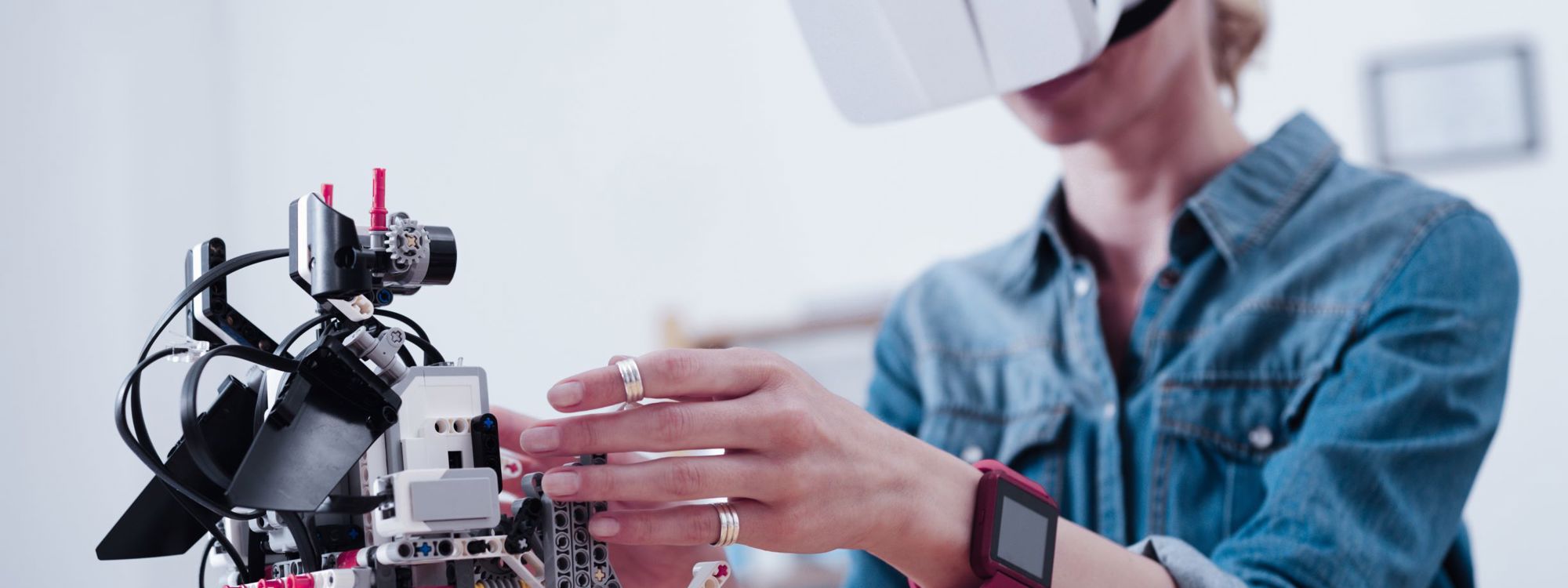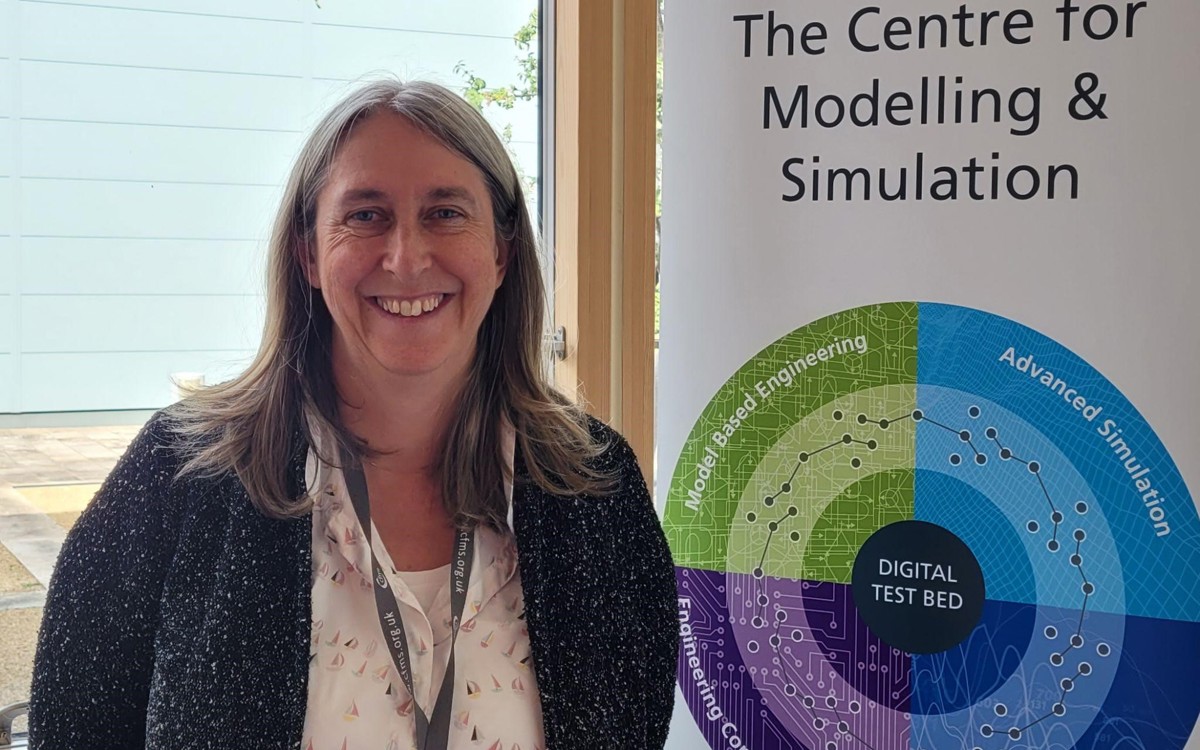
Shining the Spotlight: Introducing Lyndsay Gibbons
Restarting a career can be difficult when faced with a system that doesn’t look favourably on gaps in CVs and women are often disproportionately affected by such bias. Thinking about the specific skills, qualifications and the speed the technology is changing, the perception is that the CV gap means deterioration of skills, leaving many feeling not confident enough to go back to work.
With the UK needing an estimated 124,000 new engineers and technicians a year to meet a shortfall in skilled labour, the sector can no longer afford to ignore the huge pool of talent made up of women looking to restart their careers.
Working in partnership with DETI, CFMS is committed to support STEM returners.
Introducing Lindsay Gibbons, our latest team addition, a STEM returner after 20 years of a career break.
LG: I did mechanical engineering as my first degree and University of Bristol and then I stayed on to do a PhD which was specifically about the finite element analysis behaviour of a car body shell sponsored by Ford Motor Company. After my degree I got a job with the MSC commercial organisation behind MSC Nastran. After 15 years I reached the point in life where I decided to have a family, so I ended up taking 18 years off to support my children. It was a hard decision to make as I loved my job, I loved being an engineer but that required to be a full-time employee which I couldn't do due to other family issues.
When children became a little bit more independent I decided to take a part time role so for the last 6 years I was working as a teaching assistant.
What made you leave that role to return to engineering?
Going back to work after my youngest went to senior school made me realise how much has changed in the 18 years that I have been off work, it felt like the whole world has changed in fact. Supporting a class in GCSE computing reignited my love for computers and engineering and I felt like this was the time for me to go back to work. Being exposed to the curriculum and requirements students need to fulfil these days, I quickly realised that the tools I used as a PhD student are now commonly used in teaching engineering at the undergraduate level.
What drew you to CFMS?
There's a big front for STEM returners and coming across the CFMS through different websites and recommendations I was immediately attracted because my background is modelling. I was just fascinated to read about the technologies used at the company and I thought I really need to find out about this hence I ended up here on DETI.
DETI project is a publicly funded research project which is looking at helping organisations with their digital transformation. My role specifically is looking at the digital tools engineers use for product development and understanding how they all link together so they can be used more effectively.
Being back in engineering, how does that feel?
I am loving it. Being a secondary school TA where the curriculum is well defined you know exactly where you are every moment throughout the year.
Research isn't like that at all it's where you lead yourself I suppose and that has been really interesting for me to be able to sit down, read all the current research, see what people are doing, how they doing it, even working with interns and the level that they are at with the programming skills and engineering skills it's just phenomenal. What has happened in the 18 years I was absent still blows my mind.
What made you go into engineering?
I was always fascinated with numbers and patterns that numbers make. My dad worked for an airline and I travelled a lot when it wasn't as common to be travelling around the world. I had a lot of exposure to the aircraft and aerospace industry and it was the era of the space shuttle and all the space missions. The two coincided in my mind, I could take my numbers and do something practical with them like build an aircraft and understand the rocket.
What advice do you have for future engineers and for women going back to work after such a long break?
You've got to have the right kind of expectation. When I started my studies there were 100 students on my course but not all pursued engineering after they graduated. It’s important to know and understand what you’re getting yourself into and ask the question: is this what makes me tick? Do I want to spend some time in the machine lab running an engine or do I want to go into a wind tunnel? There are different forms of engineering and they are all interesting in different ways so knowing what really interests you is very important.
With regards to coming back to work, being a mother does something to your brain, in a way that it’s hard to describe and imagine if you have not experienced it. As much as I loved being a stay-at-home mum, I really missed using my brain in challenging work situations. So as difficult as it was to change my mindset and bring back to life everything that I had packed on the back of my brain, it was a great decision. I was lucky to have had the TA experience as well which helped a lot with confidence, but I have realised it’s never too late to go back to work. Taking that leap, I think you need to have a good structure in place to return to a technical career as a lot is demanded of you that you haven't done for a while. Finding a supportive organisation and mentor made a massive difference to me. My line manager (Guy) really understood my level of knowledge.
What’s next for Lindsay?
I have 1 year to work on DETI. Where that will lead I don’t know yet but I am excited about what the future holds. Whatever it is, I know it will be something technical and CFMS through DETI has enabled me to go back and explore my options. CFMS is right in the centre of digital innovation, they have the right platform, the right skill set so if you want to do anything technology related this is the place to be. I am very lucky to have ended up here and DETI was a good step in going back after a career break.
This article was originally published by CFMS - https://bit.ly/2YTytZm

